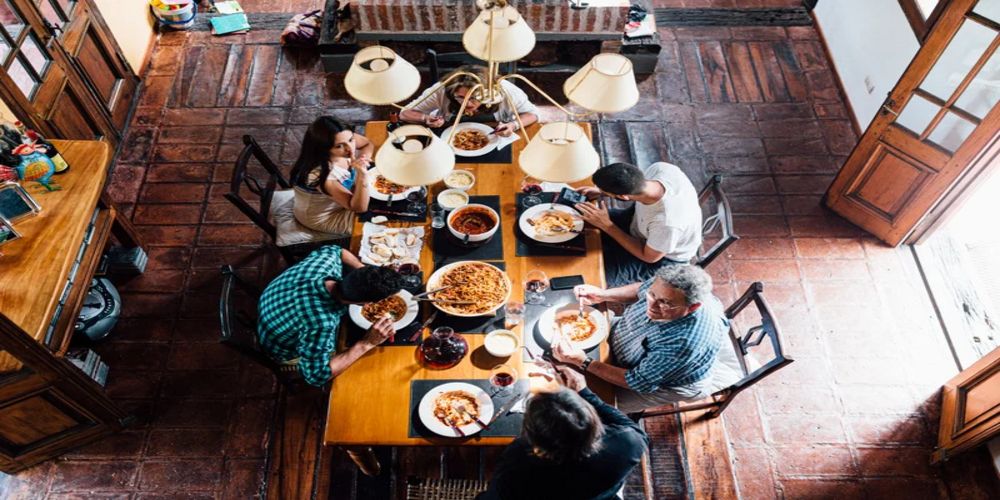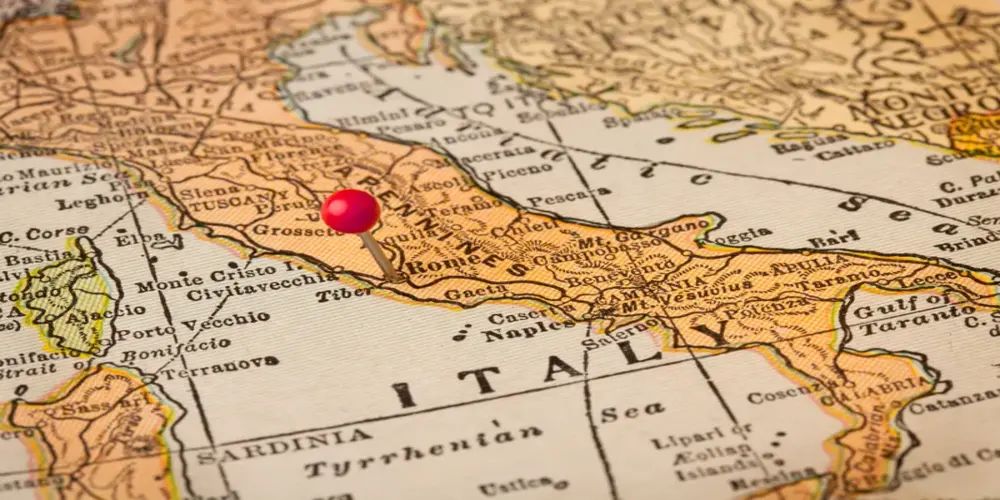Our country is worldwide-famous for its wonders — architecture, cinema, art, cuisine and culture — and loved for a unique lifestyle, focused on creativity and innovation, while also valuing a balance between work and leisure. When the workday is over, Italians love to enjoy life, spend time with their friends, relax, and make ordinary moments special.
However, this attitude is often misunderstood, and over time many clichés about it have emerged. Some of them make us smile, others make us cringe because they’re clearly false. That’s why today we want to share the real truth about Italian lifestyle with you through this curious yet essential guide that debunks many of the stereotypes about Italians.

Stereotypes about Italians: which ones are the most famous abroad

We Italians are famous for many things, qualities that make us peculiar, folkloristic, likeable and, why not, fascinating and exotic to foreigners' eyes. But, as we reiterate, these features are often romanticized and exaggerated.
As mentioned, for example, it is commonplace that we just cannot be punctual because we waste time and relax too much. Also, according to many, our diet consists totally of pasta and pizza every day, no exception, perhaps with a nice flask of wine on the table. We are also considered ”mama's boys", with an excessively long and resistant umbilical cord. And how can we forget the unfailing hand gestures, pointlessly decontextualized, that perpetually accompany our speeches? Or the abysmal differences between North and South, which almost seem like two different countries?
In short,a minimum of guidance is needed to understand what is true, what is not, and what needs to be downsized. Continue reading our guide to debunking stereotypes about Italians and discover the whole truth!
Listen to the podcast version of the article with Monna Lisa and Leonardo's voices
5. Italians eat only pasta and pizza

The most famous Italian words in the world are “Ciao,” “pasta,” and “pizza.” So, the last two are food-related and not by chance! Our culinary heritage is indeed famous, highly praised, and widely imitated. The authenticity of the ingredients and the versatility of the recipes mean that pasta and pizza can be made in countless ways, encouraging both creativity and delicious flavors, and match our Mediterranean diet.
However, many people abroad believe our diet consists solely of these two dishes. Nothing could be further from the truth! While pasta is a queen on our tables and pizza is our favourite weekend pamper, Italian cuisine includes hundreds of specialties of all kinds. Our traditional dishes include rice, grains, and legumes — of which we have plenty — vegetables of every variety, cooked according to the season and meat or fish-based recipes that reflect our diverse regional landscapes. In our kitchens, boredom is never on the menu and every day you can smell irresistible aromas.
So, let’s debunk the most famous stereotype about Italians: no, we don’t eat pasta and pizza every day! Don’t believe us? Explore our vast recipe section and check it.
4. Italians always make gestures while speaking
The Italian language is loved for its musicality and expressiveness, for how directly we express our thoughts and how effectively we communicate both positive and negative emotions. We are passionate and we express it not only with a generally loud voice, especially in the South, but also with our well-known gestures.
Yes, it’s true: Italians simply can’t speak without using their hands. Our iconic hand gestures emphasize what we're saying and make our messages clear — leaving no chance for misunderstanding. From North to South, with small regional variations, gestures accompany spoken language and are actually a powerful form of non-verbal communication, along with our expressive facial expressions.
So yes, the stereotype that Italians talk with their hands is absolutely true, but it’s also incredibly useful. If you want to truly immerse yourself in our culture, it’s worth learning the meaning behind these gestures. We’ve even prepared a guide to discover the most common and meaningful gestures used across Italy.
3. 3. Italians are strongly devoted to the family

Another stereotype concerns family dynamics: Italians are often called “mammoni”, mama’s boys/girls, which means that they’re excessively attached to their families, especially to their mothers.
It’s true that Italian families are very close-knit and love getting together for any occasion, and that adult children often live near or even in the same building as their parents to support each other. It’s also true that many young adults stay with their parents well beyond the age of 18.
But this is largely due to the difficulty of finding stable work and becoming financially independent. That said, many Italians move to Northern Italy and become self-sufficient at a young age, often during their university years, end up staying in their adopted cities or moving frequently for work.
In short, while “mammoni” do exist, it’s important to consider the general social and economic context of the country, which often makes it hard for young people to become independent.
2. Italians are always late

Another stereotype about Italians concerns our lifestyle and our relationship with others. Indeed, it is well known cliché that our proverbial laid-back attitude drives us to waste time and be unpunctual to meetings. The slow life, universally known as the Dolce Vita, is certainly our prerogative, but not in all contexts, all day long or every day: we love to celebrate our free time, relax, be with friends, and unplug from work but it does not mean that we do not pay honor to our appointments or are unprofessional, especially at work.
The tendency to be late is not a universal concept but often depends on the individual person - perhaps unpunctual or procrastinator by nature - or on where one lives. In large cities, moreover, with traffic and underperforming public transportation, it is often impossible to be on time.
Beyond business meetings, interviews or medical appointments, for which we wish and love punctuality, what differs Italians from other peoples is probably the great tolerance in informal contexts: waiting 5 minutes for a friend for an aperitivo has never killed anyone!
1. “In the north they always work, in the south it's always sunny.”

More Italian stereotypes facts focus on regional behavior, especially the perceived divide between North and South.
It’s often said that Ligurians are stingy, Milanese are snobbish, Venetians love to drink, and that in Naples you could easily get robbed - these are just some of the many clichés surrounding Italian regions. Needless to say, these are entirely false.
Looking at broader regional stereotypes: the North is considered wealthy and industrious, with people focused on work, disinterested in socializing, cold and reserved, just like the weather. On the other hand, the South is seen as sunny, warm, and welcoming, but also loud, chaotic, intrusive, lazy, and unproductive.
In both cases, these traits may apply to some individuals, but they have nothing to do with geographic origin. If you were to attend social settings like university or parties, you’d notice that regional differences, despite accents, are barely noticeable.
And when it comes to the weather, it depends on the region and the time of year, but believe us: the sun shines in Northern Italy too!
Beyond stereotypes about Italians: the authenticity of the culture
Besides the ones already mentioned, there are many other common myths about Italians. Like most stereotypes, they may contain a grain of truth that has been exaggerated, distorted or romanticized. Many come from outdated habits or cultural legacies but are ultimately oversimplifications.
Actually, Italian society is complex and layered and deserves to be understood with care. While local identity remains very strong, it’s fair to say that the similarities among Italians, from North to South, are far greater than the differences.
The authenticity of Italian culture lies here: it is a unique blend of peculiar traits, contrasts, and nuances that together create a beautiful, colorful kaleidoscope - a lens through which the world looks a little brighter.
About the author
Written on 25/07/2025



Denise Penna
There are countless stereotypes about Italians and Italy—some of which are complete nonsense. Curious to know more? We'll tell you the truth!